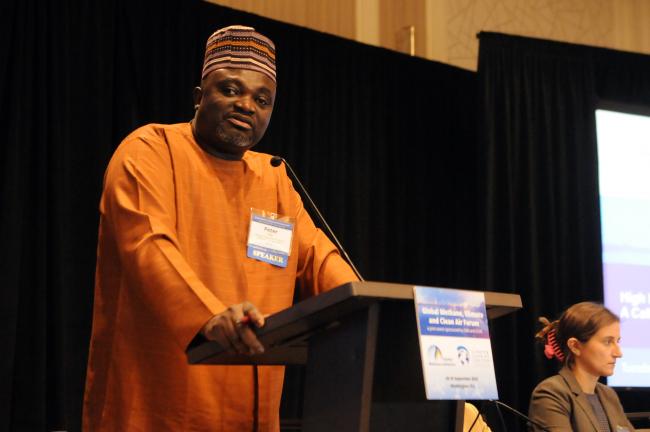The Ministry of Environment, Science and Technology has reiterated Ghana’s commitment to protecting marine life and strengthening ocean governance.
Speaking at the 2nd International Conference on Ocean Governance, themed “Emerging Issues in the Marine Environment and Law of the Sea”, Director responsible for the Environment Division at the Ministry, Dr. Peter Dery outlined key interventions to boost the country’s marine capacity. He stressed that strengthening stakeholder collaboration and deepening understanding of the ocean and its ecosystems are essential steps toward sustainable development.
“As a ministry, we see key areas for immediate focus. We are committed to strengthening Ghana’s marine scientific capacity. We must expand our investments in ocean observation systems, marine biodiversity research, and coastal resilience studies to enhance our understanding of the ocean and its ecosystems. We are also prioritising inter-ministerial and multi-stakeholder coordination. Ghana has chosen to respond decisively as a country. ”
Also addressing participants, Solicitor General at the Office of the Attorney General and Ministry of Justice, Mrs. Helena Ziwu emphasized that the rule of law remains central to Ghana’s approach to marine governance. She, however, cautioned that reaffirmation alone will not be enough.
According to her, meaningful progress requires deliberate action, strong collaboration across sectors, and strategic investment in building the capacity of the next generation of leaders.
“And to reaffirm, the rule of law remains in the centre of Ghana’s approach to marine governance.However, the work ahead will require more than reaffirmation. It will require careful and deliberate action across multiple fronts.We must invest in the next generation of lawyers, marine scientists and environmental professionals.We must also develop jurisprudence that takes into account customary knowledge, the interests of local communities, and the emerging imperatives of climate justice.”
Story by Charles Dauda Wumbe |univers.ug.edu.gh
Edited by Michelle Lartey

